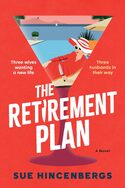 THE DEATH MASK |
|

Voyages of the Queen Read Kindle PreviewMurder books passage on the British luxury liner Queen Victoria, turning ship’s nurse Maeve Chandler into an amateur sleuth apprenticing under the tutelage of mystery writer Agatha Christie. October, 1929. A passenger dies in full view of the first-class dining salon, followed by a millionaire apparently leaping overboard a day before the New York stock market crashes. Add in an abusive husband pushed down an open lift shaft and a crewman left to cook against a boiler in the ship's engine room, and a killer will walk free when the ship reaches New York unless Maeve and Agatha can unwind the clues -- but with 2,935 suspects on board, every revolution of the Queen Victoria's propellers means time is running out. Excerpt Tuesday, October 29, 1929 I It seems to me that sometimes, no matter how good a start a day gets off to, there is always something or someone standing in the wings ready to hurl a spanner into the works. (Or a monkey wrench into the gears, for you Yanks.) You get started bright and cozy, and the next thing you know, bang, that spanner comes flying out of nowhere and the world starts to come apart at the seams. That’s the way it was on this Tuesday, October 29, 1929. Despite increasingly rough seas, the morning began routinely enough as And then the bottom dropped out of the overcast gray sky. The wireless room began passing urgent messages on to the well-heeled passengers, and soon afterward rumours began to float around the First and Second- Class smoking lounges. By lunch the rumours became a groundswell. By 13:00 hours the groundswell became a tidal wave. And by 14:00 hours Captain Webster had restricted access to the Victoria’s wireless room and required the operators to post New York bulletins at Purser Collins’s bank every quarter hour. The wireless officers and their staff felt like they were under siege. It would have been an understatement to say that yesterday’s worries had turned into today’s troubles - a full blown panic was afflicting the First-Class passengers, and the cold grasping tentacles of fear were spreading throughout the ship to those less well-off but still acutely worried about losing what little they had. Not only were those unfortunates showing much less interest in the gaiety of shipboard life than they had previously, (the death of Thomas Morten was just one of those things, a sad incident already mostly forgotten) but so were the domestic staff traveling with most of them. Few, if any, of the maids, governesses and valets hoped to actually have a job once they and their apparently suddenly financially bereft employers landed at the Manhattan piers Saturday. I had to agree with Doctor Harper here. I too am not a financial genius, but it appeared to me that an economic disaster of Biblical proportions was taking place on the stock exchange in New York. The Victoria’s powerful Marconi radio set up suddenly took on a hitherto unknown importance. Requests to relay messages began arriving from other ships, asking that the Victoria please send along frantic sell orders from their passengers to Manhattan. A ship with a more powerful wireless transmitter is generally happy to provide a forwarding service, but today the wireless room made no promises; requests were taken but with the caveat of “when our passengers are done” coming first; bona-fide distress calls, of which fortunately there were none, automatically going to the top of the queue. As the afternoon wore on, the crisis changed to panic, and the panic changed to pandemonium. Nervous passengers, many holding damp disintegrating radiograms in their sweaty hands, repeatedly asked the deck officers if the Victoria could go faster; yes, they were told, she could, but only in a life and death emergency; this, in the Captain’s view, did not constitute one. Was Saturday still the earliest the Victoria was scheduled to dock in New York; yes, it was, maybe a bit earlier than scheduled, and yes, the officers agreed, the news was bad; yes, the wireless room was doing all it could to keep up with the increasing volume of traffic. No doubt some of the more astute passengers were wistfully recalling the flight almost a year earlier of the Graf Zeppelin from Europe to America in just over 111 hours, or Lindbergh’s epoch- making flight in 1927 in just over 33 hours and wondering if air travel might indeed someday be faster than plowing through unforgiving waves in a ship, even a ship as grand as the Queen Victoria. It was, all in all, a tumult never before seen or experienced by even the most seasoned officers. And somewhere in the midst of all of this hue-and-cry, Harvey Wilson went missing. It was the bellboys who noticed it first. They had been hand-delivering sheaves of radiograms to the luxurious suite on A Deck, but there was no answer to their knocks at the door. Disappointed – no answer meant no tip, and with an American millionaire inside, who knew what they might expect – they just slid the urgent messages under the door and went back for the next set. Doctor Harper, Doctor Bratton and myself were being run ragged by upset First and Second-Class passengers. It was one call after another, without a break in between. Nothing life threatening, but plenty of anxiety and hyperventilating to go around, and that included the crew. I paid a call on Chief Purser Collins shortly after 15:00. At the best of times, Collins was a man who laughed nervously and was very focused on his job, sometimes to the detriment of his own health. I was afraid today’s events and demands were going to push him over the edge. He rubbed a hand across his fevered brow and tried to make order out of the chaos that was his desk while I tried to take his pulse and blood pressure. “Mister Collins, please. Sit still.” “This is insane,” said Collins. “Never, not once in all my years at sea, has there been a day like today. Passengers going crazy. Radio traffic at an all-time high. Constant posts and updates from New York.” Collins reached for the cup of tea that had been delivered to him and took a sip, then brushed against a stack of notes on the edge of his desk, sending them toppling to the floor. Collins cursed, set down the cup and bent to pick them up, noticing among them a single Queen Victoria stationary envelope simply addressed to “Chief Purser, David Collins” in a simple type face. “What the bloody hell is this?” he said. I gave up trying to get his pulse. I’d have better luck seeking out Agatha and working on the Morten case. “Why don’t you open it and find out?” Collins rocked back in his chair for a moment, then very precisely tore the end off the envelope and extracted the letter inside. He scanned it. “Bugger all,” he said, handing it to me while he rang the bridge. In twenty seconds we were out of his office, heading topside. Fifteen minutes later a grim group assembled in the Captain’s conference room. Captain Webster and First Officer Jackson were joined by Quartermaster Carter, Mister Harvey, Mister Collins and Master-at-Arms Armstrong. Doctor Harper and I stood to one side. Webster was holding the letter in his hand. “Genuine?” he asked Collins. The purser shrugged. God, what’s next?” The Captain folded the note and put it back in the envelope. “Has anyone actually seen Wilson today?” he asked. “I would think that of all of our passengers, he’d be in the forefront of the press at your bank, Mister Collins.” Collins shook his head. “Of course, there have been messages for him today. The boys have been delivering them to his stateroom non-stop.” “No response?” rumbled the Master-At-Arms, his normally jovial moon-like face intense. “None that I’ve seen.” Collins dabbed at the perspiration on his forehead. “And you haven’t gone and checked for yourself?” asked the Captain. “Either you or Mister Harvey?” Harvey and Collins exchanged nervous glances. “No, sir,” said Harvey. Captain Webster bristled, one of the most fearsome sights I’ve ever seen. The man could stare down a shark. “Mister Collins, Mister Harvey – I realize we are having an unusual day here, but I really believe someone should go and check on Mr Wilson’s stateroom.” “I’ll do it,” said Collins. The Captain gave Collins a curt nod. “Then go. And leave this note out of any conversation you may have, for now.” “Yes, sir.” Collins shot through the door, glad to be out. I couldn’t blame him. The Captain turned back to the rest of us, his face a mixture of cold fury and indignation that this was happening on his ship. “Fine. Not a word. Mister Jackson, Mister Carter, Mister Armstrong - quietly – and I mean quietly – search the ship. Back here in three hours.” He looked at myself, Harper and Harvey. “You three stay a moment. That’s all, gentlemen.” Mister Jackson gave us a curious glance as he left the room, but said nothing. When the door had closed Captain Webster crossed his arms. “First Thomas Morten and now this.” He looked at Harper. “Nothing new to report there?” “I’m afraid not, sir,” said Harper. I politely cleared my throat. The Captain looked at me. “Yes, Nurse Chandler?” I bit my lip. “I’m sorry, Captain, Doctor Harper. There is something new.” A wave of anxiety rolled over me. “I completely forgot to tell you in all the tumult this morning. I was speaking with the bartender in the ship’s pub late last night after Doctor Harper and I searched out the Alston boy - “ “A search last night? For a boy?” The Captain looked at Mister Harvey. “Did you know about this?” “No, sir,” Mister Harvey said with a frown directed at me. “He had just become separated from his mother,” said Doctor Harper. “We found him without difficulty.” “He wandered away on Sunday evening, too,” I offered. Harper closed his eyes. The Captain grunted. “Perhaps his mother should invest in a good quality British leash. Get on with your story, Nurse.” “Yes, sir. Josh, the bartender, told me that Morten apparently had some sort of issue with a drink served him in the Observation-Lounge before dinner.” “What kind of issue?” asked Harvey. “Josh didn’t know, he was busy pouring and mixing. He just said he noticed Mr Morten seated with two women, and he was talking to another steward like it was about his drink. The steward tried to take the drink back, but Mr Morten apparently decided to keep the drink after all. He and the women kept talking and drinking. Of course, an hour or so later Mr Morten died. Josh didn’t know who the steward was, he only saw him from the back across the room.” “Mister Harvey?” said the Captain. “Josh can be a bit thick sometimes, but he’s still one of my best. I’ll check it out.” The Chief Steward left the stateroom. The Captain turned back to us. “Anything else, Nurse? inside. “Well, there’s a passenger.” Morten.” gain knowledge of this incident?” suppose she is because of this preferential treatment.” He eyed me. “And you’re going to tell me she’s not, aren’t you?” “Yes, sir.” Mrs Templeton has offered her help. She was an apothecary assistant during the War.” The Captain’s jaw tightened. “I suppose that makes her as qualified as anyone else.” He stroked his beard. “If this was two centuries ago, I’d be sorely tempted to make the pair of you walk the plank. However, you say she sought you out, and is giving you help in your investigation.” He clasped his hands behind his back. “In spite of my better judgement, I’m inclined to allow you to continue. But keep this quiet.” He gave us both a cold eye. “I mean it.” “Sir,” said Harper. “You might as well take charge of it as anyone else.” facto repository for the occasional dead man. Might as well add the missing to the list.” “Begging your pardon, Captain,” I said. “But shouldn’t that go to Mister Armstrong instead?” What passed for a smile crossed the Captain’s face. “Our Master-at-Arms is very good for the occasional professional gambler or inebriated passenger. I’m afraid suicides of American millionaires may be out of his depth.” “Yes, sir.” I swallowed. “And murder?” Harper gave me a sharp look. Captain Webster gestured at the porthole. “Look out there, Nurse. What do you see?” “Ocean.” “Exactly. Big, empty ocean. Not where I would like to have a panic because someone is poisoning passengers and millionaires are apparently committing suicide. Doctor, I’m charging you and your merry crew with cleaning it up. Do I make myself clear?” “Yes, sir,” said Harper. “Quite.”
Start Reading SHADOW OF THE QUEEN NowVoyages of the Queen

Our Past Week of Fresh Picks
Set in the art world of 1970s London, The English Masterpiece is a fast-paced read to the end, full of glamour and Read More »
Detective Arkady Renko—“one of the most compelling figures in modern fiction” (USA TODAY)—returns in this tense thriller set amid Read More »
Eat Post Like is a heartwarming debut novel of self-discovery, resilience, and the transformative power of food.Cassie Brooks has her life all Read More »
In this million-copy international bestseller from Korea, the owner of a corner store takes in an unhoused man who does a good deed, a Read More »
From NYT bestselling author Rachel Gillig comes the next big romantasy sensation, a gothic, mist-cloaked tale of a young prophetess forced Read More »
It’s twice as hot in this extra steamy Christmas in July two-in-one cowritten by #1 New York Times bestselling Read More »
Three best friends turn to murder to collect on their husbands’ life insurance policies… But the husbands have a plan of their own Read More »
The next novel in the series that Kirkus Reviews characterizes as “Stephanie Plum meets the Ya-Ya Sisterhood” featuring sassy Read More » |
|
| |||
|
||||






















 © 2003-2025
© 2003-2025